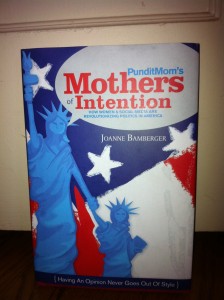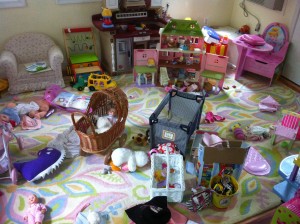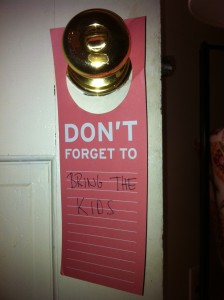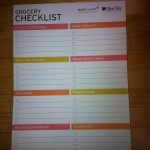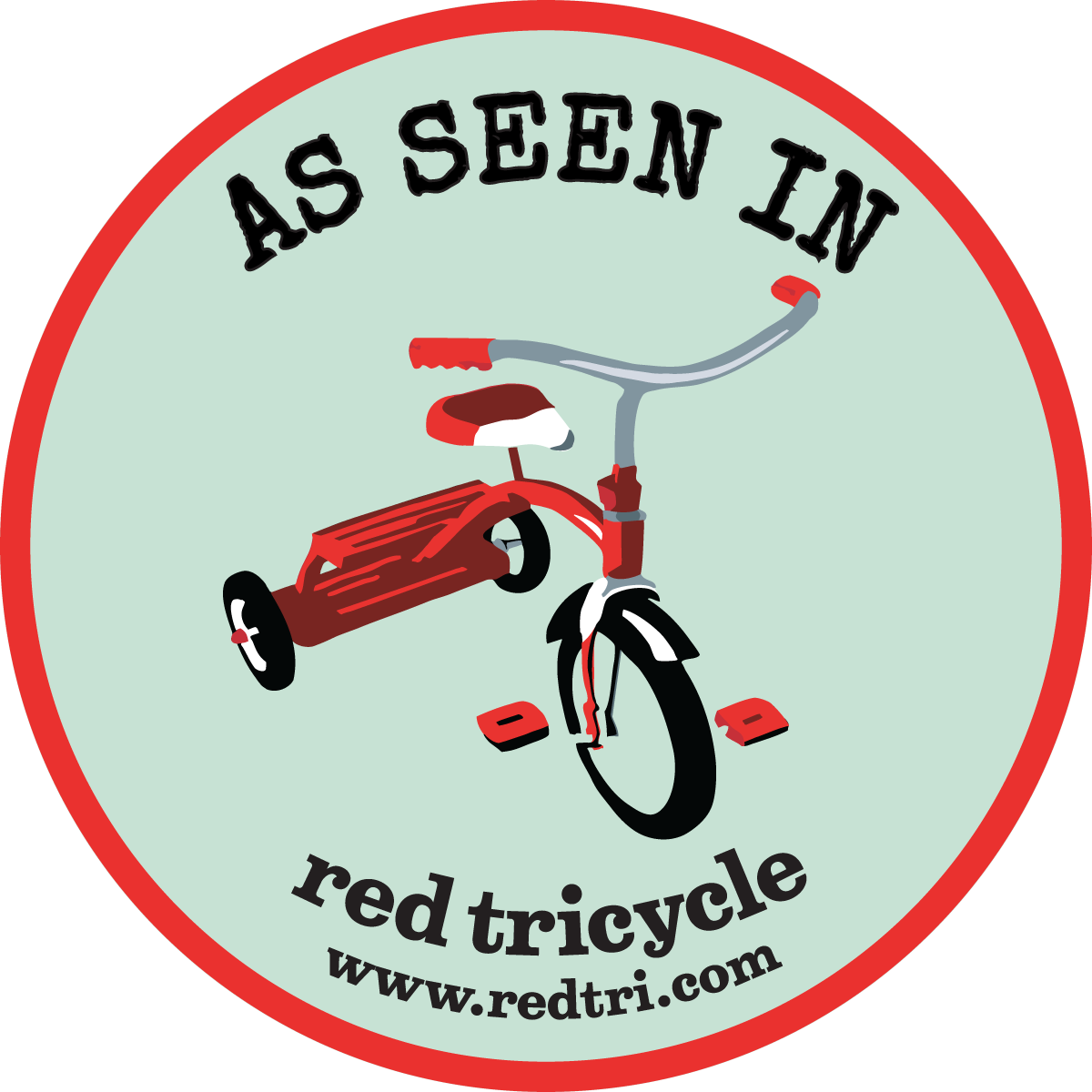Do you think there is an unspoken bias against young mothers in the media, in the workplace, in politics? Do you recoil when female political candidates are asked who’s taking care of the kids? Are you socially active online? Do you talk to your kids about politics, the elections or voting? Odds are you answered in the affirmative at least once in the above questions. If so, then today’s Wired Momma expert is the one for you. I offer you local mom and political pundit Joanne Bamberger, well-known online as PunditMom and newly published author of “Mothers of Intention: How Women and Social Media are Revolutionizing Politics in America.” I devoured her book in anticipation of our interview and felt I could have peppered her with questions endlessly for hours. Her book is ripe with hot topics, issues of interest to mothers across the political spectrum and loaded with fascinating research and insight into the importance of mothers in the political process and influencing our children and change online.
Sure. Kristen Chase is a classic and wonderful example of a woman online who has not historically been politically active. Then she became a mother and issues started resonating with her in a way that they just hadn’t before. Facebook apparently didn’t ban images that groups who are pro-anorexic were posting but they banned images of women breastfeeding their kids. Kristen knows how to reach moms of young kids and used her savvy to get mothers involved politcially and influence change. Facebook did change their terms of service. I think what’s important to note is that this is an example of how being political and being an activist online means something different to everyone. You don’t have to tackle candidates and their issues, specifically, to be politically active. I think an example of an interesting issue that is really bubbling right now and moms are actively engaging is the discussion of McDonald’s and their recent decision to shrink the size of fries in Happy Meals and include apple slices in the meals. Of course, many people question whether government should even be involved in personal decisions like what we feed our kids, but this is a fun one to track.
That is an excellent point and one that I haven’t even considered yet. My oldest will be old enough to ask slightly more sophisticated questions in the next campaign -and I’ve been stumped by the basic “How did I get out of your tummy” question – so without some careful advance thought – I don’t know that I could coherently answer the “Republican or Democrat” question in meaningful terms to her. This is really helpful in terms of preparing to talk with our kids before the next election. So let’s move to the chapter I am most anxious to discuss with you – the “Who’s Raising the Kids” chapter. I, for one, attacked Sarah Palin on my blog during the 08 campaign over this question. On one hand, I think that women are quick to talk about how motherhood is a job – in and of itself – and how we take on more work than men and our husbands – so if we bill motherhood as a job – then is it totally fair for us to say it’s unfair and sexist to ask women, whether they are politicians or not – these questions about who’s handling the responsibilities when there are kids at home?
I think if we ask all the politicians this question, then it’s not sexist. But we don’t. For example, when Debbie Wasserman Schultz was named head of the DNC, there was a big article in the New York Times and the picture of her that accompanied the piece was her in a pink sweat suit and the first paragraph was about her being a wife, mother, lunch packer, Congresswoman and political fundraiser. Contrast this to when Tim Kaine was named head of the DNC, there was a photograph in the New York Times of him with the President. He’s also a father of three young kids but it wasn’t even noted. So, why don’t we ask that question of all candidates who have small children? I really think this is more of a media coverage issue and the media are so stuck on this story of women with young kids because it’s an easy story to write. Personality driven politics are always the easiest to write about. I mean, why are we all obsessed with Amy Winehouse, where is the twitter outpouring of people dying in Somalia? Nobody raised the question to Obama when he was running and he has elementary aged kids. It is still unspoken that it’s the mom’s responsibility to worry about the kids. And we have to look at how the rest of us are writing about it as well. Do we fall into the same analysis, ultimately questioning if these powerful women should be political because they have young kids? I think there is an undercurrent of bias against moms with young kids, not just in politics. Certainly many women have experienced it in their work – questioning their commitment and time abilities because they have young kids at home and the moms are responsible for the main portion of care giving.
I’m thinking this discussion of a bias against mothers with young children is worthy of multiple blog topics and discussions. And one I’ll certainly be more careful about discussing as this next campaign heats up. I eagerly read your research showing that even such progressive outlets like NPR found a serious lack of women’s voices in their own reporting, let alone the lack of female op-ed columnists. What is your advice to other women – what should/can we do to help change this?
There are two schools of thought on this — one is to increase the number of women who submit op-ed type pieces to traditional outlets (since one of the reasons fewer women are published is that fewer women submit) and make ourselves more available to those seeking out commentators, and the other is to build our own outlets for commentary and expertise. While some fear that we then create our own women’s “ghettos,” where our writing and opinions can be further dismissed, I think we need to go at it from all angles. That’s why I’m starting a new group site for women’s commentary called The Broad Side. I think we just need to overcome our fear of feeling like we need to be complete experts in a field before we put our opinions out there, and realize that we already have much more expertise on so many topics than we give ourselves credit for.
One of my closest friends from college interned for a Member of Parliament back in the early 90s. At the time, her Member noted that little girls in England all grew up with a female role model as Prime Minister and obviously our little girls here in the US have yet to see that. It seems there is one female candidate in the running for 2012 and one that, in my opinion, sets us back on issues not forward. Who do you like for the Republican contender in 2012 and do you foresee any women, in either party, as serious presidential contenders beyond 2012?
As a pretty liberal Democrat, I don’t think I can say I “like” any of the Republican candidates who are coming forward for 2012. That’s sad because there was a time when more moderate Republicans were interesting as candidates to Democrats. As for serious women contenders in 2012, I know many will disagree with me, but I think Michele Bachmann is a much more serious contender than most pundits give her credit for. I think many in the media and political word don’t grasp the undercurrent of dissatisfied conservative women who look at Bachmann as a long drink of cool water after years in the desert. I believe both parties discount Bachmann at their own peril. I don’t think she can make it to the White House, but I wouldn’t be surprised if she ultimately gets the GOP nomination.
As for Democrats, obviously no one is seriously going to challenge President Obama for the 2012 nomination, but I am confident that Senator Kirsten Gillibrand of New York is eyeing the possibility of running for President in 2016.
It will certainly be fun to see how the next election plays out. Now, let’s switch gears and talk about publishing. I think it’s amazing that you’ve published a book – let alone a book on such an important and serious topic. Tell us – what do you know now that you wish you’d known then – about writing a book and getting it published? I, certainly, am guilty of having probably overly romanticized notions about the process.
Oh, where to start! I was very lucky. I was just starting the process of trying to find an agent (I still don’t have one — anyone?) when I was introduced to the publisher Bright Sky Press. They were immediately interested in the project, so I was able to skip one step many authors must go through. Having said that, in light of just how hard it is to get a book published traditionally today (as opposed to e-books or self-publishing), the most important thing to do is network. Find out what contacts your friends and family might have who could make an introduction. Have you met anyone in the publishing business at a professional or blogging conference?
And as for the topic, this isn’t new advice but it is important — make sure the topic you pick is one you LOVE and can stick with for a couple of years, because things will move much more slowly than you think and you have to stay excited and engaged with the project to make it happen.
Thank you to Joanne for her time today and for such a lively discussion. I appreciate the insight she’s given us and some of the important things, at least I am left, to consider, both with how I talk about women in politics and how I talk with my girls about politics. I urge you to buy Joanne’s book, not just because it’s loaded with great content and essays from other women bloggers covering the political spectrum, but to support this local mom and popular local blogger. Next week’s expert topic will take a very different and itchy direction…but certainly timely with Back-to-School around the corner. I’ll be talking with Karen Franco of Advice on Lice. Yes, friends, it’s that time of year.

